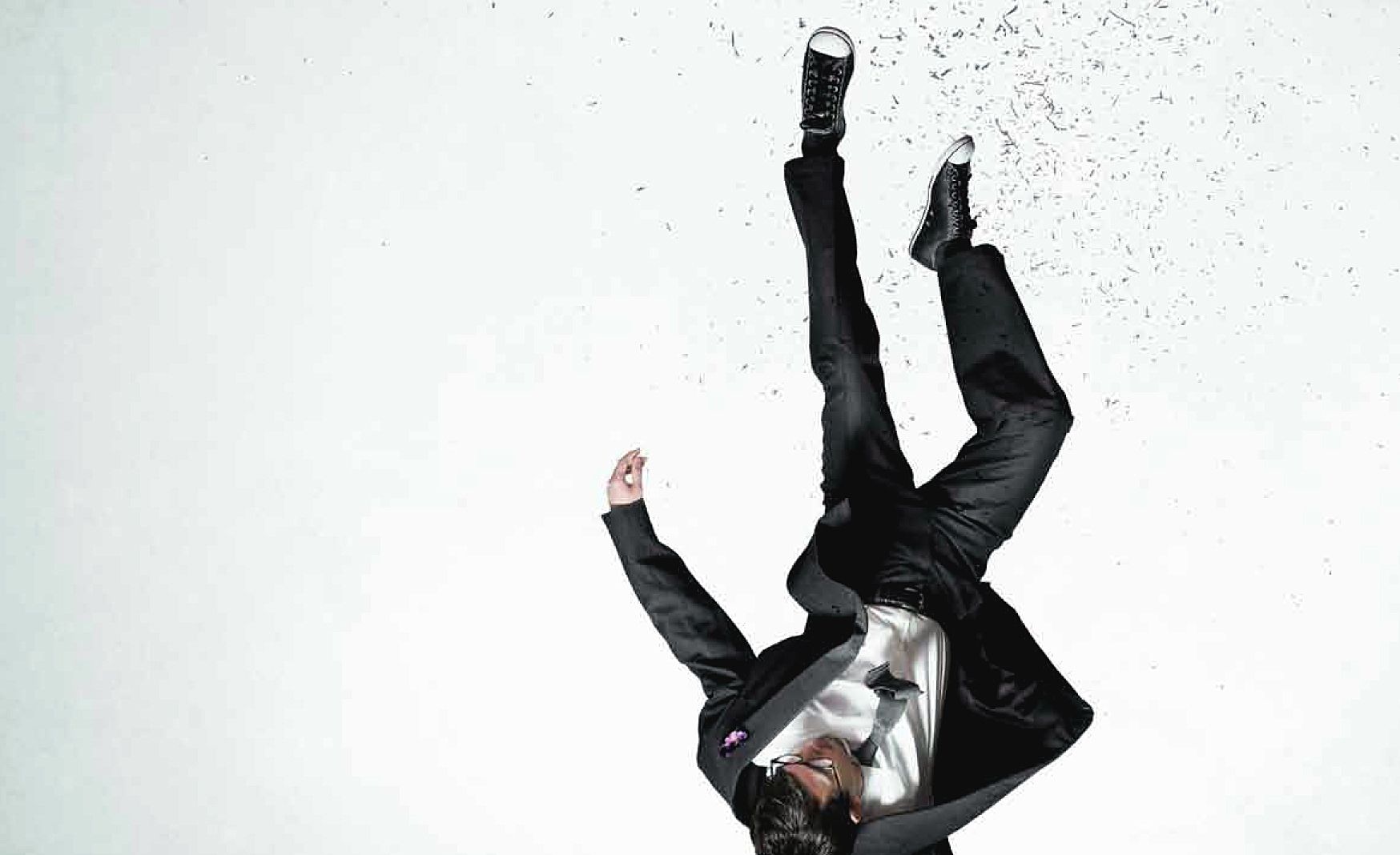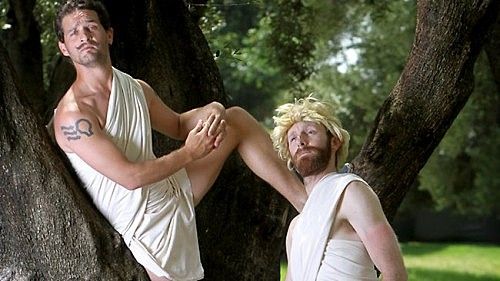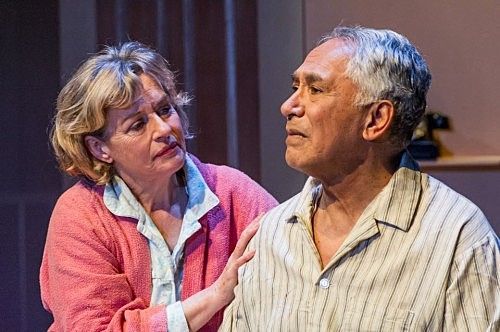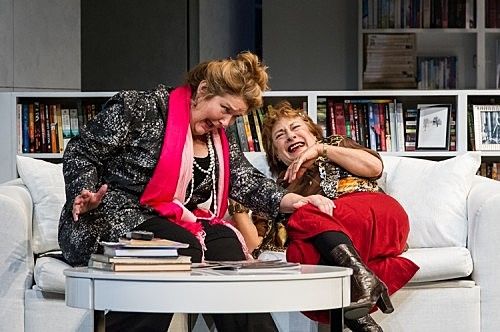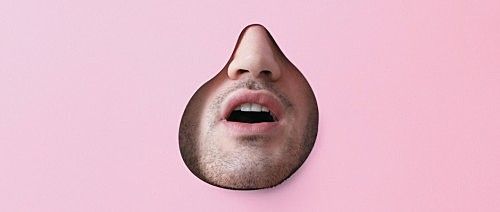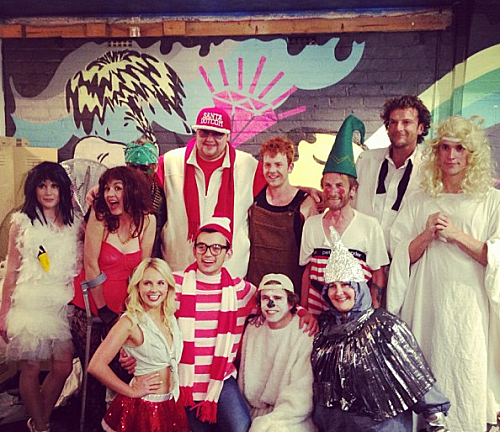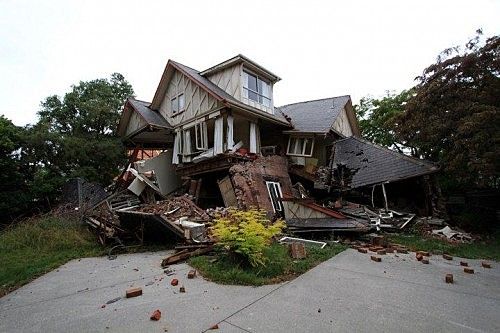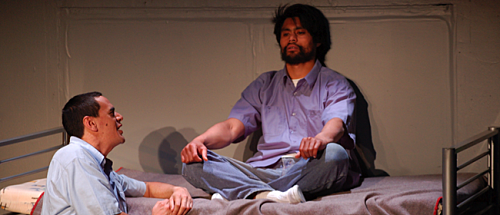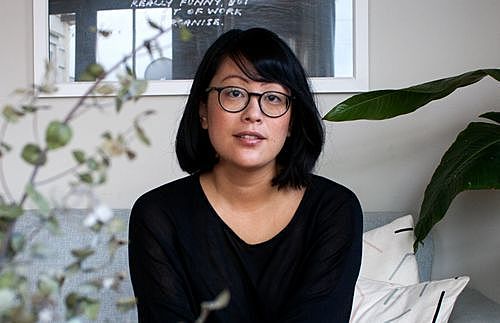Ten Things I Enjoyed in Auckland Theatre This Year
Rosabel reflects on a year of Auckland theatre: what was great, what wasn't, and what was deeply disturbing.
I like theatre that treats me bad. That makes me cry. That runs its thin, dry fingers across my chest and digs its nails deep into my skin. I like theatre to leave a scar. Faint memories that flicker in quiet moments. Theatre that feels alive. That transforms. That feels new. And t’s been a fantastic year for this, for political and personal theatre, so here are ten personal highlights:
Hanging Out in the Q Theatre Foyer
Returning to Auckland meant getting to visit the recently-opened Q Theatre. It’s a luxurious venue, with a much-needed foyer that ties the surrounding theatres together. Best surprise: the foyer is actually nice. It's a foyer you want to sit in, to drink in, to discuss shows in, and a welcome change from the cramped, brightly lit spaces that appear designed to make you want to leave.
Two superb plays were staged at Q earlier this year: Massive Company’s ensemble project The Brave and Ian Hughes’ one-man show Ship Songs. Both were powerful feats of personal storytelling - poignant, gentle, exuberant.
On an empty stage, the eight young men in The Brave explored the experiences that have shaped them. How they've struggled with who they are. How they're still struggling. They talked about growing up. Their bodies. Their sexuality. Their masculinity. They asked for forgiveness. They thanked people. They bared themselves with complete sincerity. It was intensely courageous, and physically impressive, too.
Ship Songs told the story of Hughes' parents. It's a mad tale, set in the wild and unforgiving sea. His mother was a runaway nurse. There was a sailor, a terrible accident, imminent death. And then - his father. This year's incarnation of the show saw the inspired introduction of a live band - Don McGlashen, Chris O'Connor and Dave Khan - amplifying an already spectacular show.
Constantinople (Theatre Beating) | The Civic Wintergarden<>
My flatmate hates theatre. Loathes it. On more than one occasion he’s returned home from something I’ve recommended stony-faced, brushing past me silently in the hall, before yelling from the kitchen: “I hate theatre.”
The only show we’ve agreed on, ever, is Constantinople, which played as part of the International Comedy Festival this year. I’m going to go a little Lehrer on you and use an old review to give you a play-by-play, because I think it’s the best way to capture the experience.
You’re walking down Queen St. It’s late. 10pm. Teens sway vacantly in front of the gelato shop, soggy cups in their hands. Muffled bass notes reverberate down the street, but as you rush through the doors to the Civic all that noise fades away. There’s music, chatter, and at the bottom of the stairs to the Wintergarden, a chorus of ladies in togas. They stare up as you descend. One of them rushes up and kisses you on the cheek, another offers you some grapes, and yet another points you to your table, nestled in the centre of the cabaret-style seating.
The crowd are in lively spirits tonight, and for a moment the atmosphere feels more party than pre-show, but then the lights dim and Barnie Duncan and Trygve Wakenshaw appear. Kicking things off with a rendition of Istanbul (Not Constantinople), what follows is a loose history of this “city of syllables”, presented in a series of sketches that are charming and absurd in equal measure.
It’s ridiculous, dumb humour done well. There’s mime – good mime, impressively synchronised with Joe Bax’s sound design – and prop improvisations that range from a button mushroom being used as a detonating bomb to the endlessly imaginative array of ties worn by the narrator. Of course, the real strength of the show is Duncan and Wakenshaw themselves: playful and brazen, they have the charisma, energy and impeccable timing that let them pull of the kinds of gags that in less able hands would have fallen flat.
At the end, they invite you to stay and celebrate the show’s swansong – they’ve been touring it for a while and this is their last performance. Swirls of dry ice fill the room, and the silhouette of special guest DJ Bevan Keys appears at the top of the stairs. The tables are cleared, and the chorus weave their way through the crowd to perform one final number, choreographed and vivaciously led by Jess Holly Bates. The place smells sweet, candyfloss and liquor, and you feel transported. Giddy. Elated.
It was this attention to detail – the way that particular brand of mischievousness filtered through to all aspects of their production – that pushed Constantinople from being a mere show to an unforgettable experience.
Eigengrau ((potent pause) Productions) | Basement Theatre<>
Eigengrau surprised me. Based on their Trainspotting-style poster, I expected something edgy but superficial. A few 'fucks', some drugs, a boob here or there. And it did have those elements, but it also revealed itself as a witty and wonderfully dark anti-romantic comedy. The cast were terrific - especially Chelsea McEwen Millar as Cassie, a women's rights activist who falls for Mark (Calum Gittins), a charming womaniser and the former lover of Cassie's flatmate, Rose (Michelle Blundell).
My two favourite parts: the devastating revelation of a betrayal that later resists the resolution you expect, or at least want, and Michelle Blundell's distressing karaoke scene: Oedipus-style self-mutilation to Total Eclipse of the Heart.
Black Confetti (Auckland Theatre Company) | The Herald Theatre<>
I have a confession about this play: I really – I mean, I desperately – wanted to like it. I wanted to love it so bad I even saw it twice. In the space of three days. It was tragic. Like going on a date with someone who seems perfect, but when you’re sitting across from them, actually having to talk to them, there’s a certain chemistry that’s not there, almost imperceptible, like a missing jigsaw piece that’s the same colour as the wood of the table you’re doing it on. You try to pretend it’s all there, but it's impossible to sustain.
On paper this sounds worse than I intend. I did enjoy the play. It was fun. It was bold - an ambitious pastiche of the supernatural and the surreal; half-murder mystery, half-thriller. The technical aspects were stunning: John Parker’s cavernous, rupturing set and Robert Larsen’s innovative projection design (that moment when Siggy puts his hand into where his dead father’s heart should be: sublime). They had a great poster, well-designed and it starred the playwright. On the poster! Unheard of. Nic Sampson, Keith Adams and Virginia Frankovich were fantastic. It was refreshing, exciting theatre. But it never cohesively came together for me. It lacked heart, and seemed to want to have one, and I can't help but wonder if something got lost over the course of its eighteen-month workshopping process.
George Henare as Willy Loman in Death of a Salesman (Peach Theatre Company | Maidment Theatre<>
Just incredible.
I'm tempted to leave it at that. Predictably, I love Miller. Whenever a play like this is on, it fills me with nervous anticipation. What will they do to it? Will they clumsily inject some New Zealand twist, set it in a late-night dumpling restaurant in Mt Albert? Modernise it by playing The Feelers and have the characters wear skinny jeans? Possibly they could have done all these things, and George Henare would still have blown me away.
Also madly jealous of all the New Yorkers who got to see Philip Seymour Hoffman in this role.
Not Seeing The Motor Camp, A Shortcut to Happiness or The Gift(Auckland Theatre Company)<>
What constitutes comedy to Auckland Theatre Company continues to bewilder me. Some might say rightfully so since I'm “only nine years out of high school” (what somebody exclaimed, with true surprise and delight, at Little Shop of Horrors) but either they think very little of their audience or their audience are appalling, weak-minded bores. I’m genuinely curious: Do the baby boomers and beyond actually adore bawdy, tasteless humour? Is it only sensible that hammy slapstick will occupy a dark, calcifying place in the hearts of a generation brought up on Benny Hill? Are the oft-gushing reviews of these plays the cultural equivalent of enduring grandma’s racist slurs with a gritted, toothy smile?
It’s perplexing because they nail the serious stuff – The Crucible and The Pillowman in 2007 and August: Osage County in 2010 serve in my mind as points of reference for how good theatre can be – and my biggest theatre-related regret this year is missing their season of Bruce Mason’s Awatea.
Three other plays I wish I’d seen, while I'm lamenting lost opportunities: Joseph Harper’s Tiny Spectacle/Shitty Lyricism, Stephen Papps’ Third Person Tense and Nisha Madhan’s double billing of Patti Smith and Sam Shepard’s Cowboy Mouth & her own Love It Up.
Silo Theatre's Open Dialogue Initiative | Q Theatre<>
Silo Theatre’s programme this year was a fiesta of feminism, disability, homosexuality and cabaret. It touted high production values, outstanding performances (Bronwnyn Bradley in Top Girls, Leon Wadham in Tribes, the entire cast of The Pride, Mia Blake in Private Lives, Julia Deans in Brel) and thematically bold but unsatisfying scripts (Tribes, The Pride).
They also introduced a wonderful and still under-promoted initiative this year: panel discussions that accompanied each play. Best was the one during their season of Caryl Churchill’s Top Girls: Breastfeeding in the Boardroom. Featuring Jacinda Ardern, Emily Perkins, Tandi Wright and Rachel Paris, it was a lively and sometimes heated discussion of what it means to be a successful woman in the twenty-first century.
Basement Going Risk Share
Worth noting: The Basement are amazing.
The plays I’ve enjoyed most this year were programmed by them – including some highlights I haven’t mentioned (the magical puppetry in This Kitchen is Not Imaginary, for instance, and the warm, playful and impressively fluid Hypothesis 1, a tender exploration of intergenerational relationships and Samoan cultural identity).
As a venue they’ve come a long way from their non-air-conditioned, clammy-palmed, scummy-toilet days, and this year’s exciting news is that from 2013, they’re going risk share. This is fantastic. It means that rather than paying venue hire, each show will give them 20% of their ticket sales instead. It’s a similar model to what Bats in Wellington uses and it’ll open the doors to shows that might not have been financially viable in the past. The Basement team do an amazing job of fostering emerging talent and as part of this rollout they plan to collaborate with Phantom and Elephant Publicity so that marketing costs can be paid out of box office sales too. There's also capping ticket prices: $15 for upstairs and $25 for downstairs. What I’m saying is: if anybody ever tells me they don't go to theatre because it's too expensive before launching into some half-hearted discussion of The Dark Knight Rises ever again, I will punch you right in the mouth.
Munted (Bare Hunt Collective) | Basement Theatre
Munted was transformative. Because it tackled the Christchurch earthquakes and how people dealt with it, immediately and in the aftermath. Because it was documentary theatre: fourteen interviews re-enacted verbatim, each of the three actresses switching deftly between multiple characters. Because it was powerful in its detail, in the small fragments you wouldn’t know to seek out – the cyclist who slipped into a deep crevice, found himself stuck, felt the soil hardening around him (“that was a hassle”) or the journalist who had to ask a grieving couple if he could use footage of their dead son on the news. Because that same father saw this play, and reviewed it here:
This is a theatre experience like no other. Some of it hurt. Hurt like hell. And those neatly tucked away emotions had an outing once more as the anxieties of the audience met those of the performers resulting in a uniquely pure theatre experience.
…
[Frith Horan’s] cameraman comes unnervingly close as he tells how he shot the footage of my son, Jaime Gilbert being dragged from the rubble that took his life.
Too close? Too soon? This was unexpected and tough theatre for me. Yet somehow I was still able to acknowledge the honesty and pure theatre of it. Maybe its because my Jaime, also a thespian, was in yet another show. I think I'll still be trying to get my head around that for some time.
Manawa (Tikapa Productions) | Basement Theatre
Unquestionably the best New Zealand play I saw this year. Based on Jamie McCaskill’s experience working with at-risk youth, Manawa is a damning exploration of our punitive justice system through cellmates Jimmy King (Jamie McCaskill) – New Zealand’s youngest convicted murderer, a man who has grown up in prison, who the media love for all his outrageous behaviour, who is charismatic and kind and unapologetically ruthless – and Mau Vaiaga (Natano Keni), a recent Samoan immigrant charged with eating a kakapo, who didn’t know it was against the law to do so, and who is actually an unwitting scapegoat for a larger and more insidious plot. It’s funny, it’s thoughtful, it’s an incredibly important piece of work. Oh, and it features a wonderful last line, delivered with anger and charm: “Fuck you, New Zealand.”
Finally: I wasn't going to include this. Because writing it makes me feel nervous. Because thinking about it makes me upset. It’s an audience reaction. Sometimes a play will disturb: due to its subject matter, the way it’s written, the way it’s played. The Sex Show, Outfit Theatre Company’s ensemble project, wasn’t one of those shows. Oh, it was confrontational in the obvious ways: onstage nudity and frank portrayals of various sexual habits. But the real revelation lay not in its holding a mirror up to nature, but in holding itself up to an audience. I’m talking about one storyline in particular: the All Black who has no qualms about cheating on his fiancé, who is terrifyingly aggressive in how he does this, who crosses the line multiple times. Distressing, extremely so, but not as distressing as the guffaws echoing around me as these scenes played out. Part of it was nervous laughter, I'm sure, but there were some grins which were unsettlingly genuine, as though they didn't understand it wasn't a joke, even if other parts of the play were. It was an unexpected cruelty. It was horrible. It left me feeling physically sick. But for me, that's where the power of this show lay.
